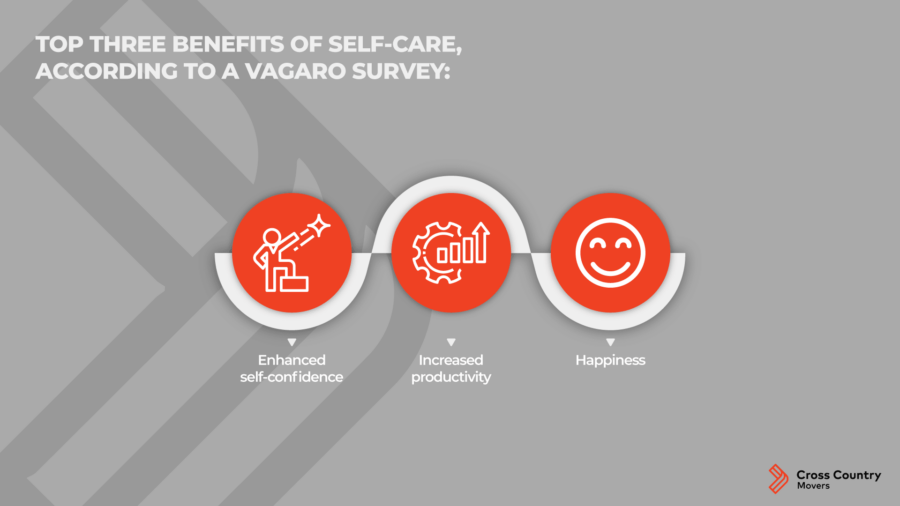

Navigating Life’s Changes – How to Make Moving Away From Friends Easier
Posted in Coping With Relocation,How-to on May 26, 2023
Moving across the country often means leaving behind familiar faces, shared memories, and a sense of belonging. The journey, however, need not be solely marked by sadness. Our guide on moving away from friends and family will help you transform this challenging transition into a period of growth and opportunity. Let’s take a look at some effective strategies that will help you maintain long-distance friendships but also make new friends and embrace the new chapter in your life.
It is important to accept and process the sadness and loss that comes with leaving friends behind and, at the same time, actively work on maintaining those friendships despite the distance. Balancing your time between nurturing old friendships and fostering new ones is key. Above all, prioritizing your own well-being, maintaining healthy routines, and seeking help when necessary, can make this transition smoother and more manageable.
Prepare for the Move and Ensure You Have Enough Time to Say Goodbye to Loved Ones
How to deal with moving away from family and friends? It’s important to remember that saying goodbye doesn’t mean the end of your relationship. However, you need to take time to inform your friends and family about your relocation as early as possible, so everyone can process the news, plan for some quality time together, and adjust their expectations about your relationship in the future.
If possible, organize a moving away party. This provides an opportunity for collective closure, and it’s a chance for everyone to express their feelings, share memories, and wish you well on your new journey. Thinking of some unique relocation announcements is also a good place to start.
At the same time, keep in mind that relocation to a new state can be physically and emotionally draining, so ensure you take care of yourself during this period. Additionally, try to look forward to the new experiences, people, and opportunities awaiting you in your new location. This balance can make the move less daunting and more exciting.

Make a Moving Checklist
Preparing for a move requires careful organization. One of the first things on your relocation checklist should be setting a realistic timeline for your move, allowing yourself a cushion of time to manage any unexpected delays or obstacles. In addition, ensure to break down your tasks into categories, such as packing or move-out cleaning, and under each category, list down all tasks you need to accomplish. Of course, make sure to set deadlines for each task.
Note that not all tasks are of equal urgency. Prioritize your tasks based on their importance and deadlines. For instance, hiring movers or notifying others about the relocation should be done well in advance, while packing your relocation essentials should be closer to the relocation date.
Hire Cross-Country Movers to Do All the Heavy Lifting
Hiring long-distance movers can significantly ease the stress and physical demands of an interstate relocation. However, for the best relocation experience, you should look for reputable companies with positive reviews and ratings, such as Cross Country Movers. Different companies may offer different services (loading, unloading, packing services, and so on), so choose a relocation company that provides the cross-country moving services that best suit your needs. Once you’ve made your choice, book your movers as early as possible to secure your preferred date.
When Moving Away From Friends, Acknowledge and Process Emotions
This type of relocation is a significant transition, and it’s natural to experience a certain level of emotional turmoil – especially when you’re relocating to another state alone. Still, it’s essential to allow yourself to feel these emotions without judgment. You might feel a sense of loss for the shared routines, shared experiences, and support you’ve had with your friends. You might also feel fear about the unknown or anxiety about building a new support network. These emotions are a natural part of the process, and acknowledging them is the first step in handling them effectively.
Ensure That You Communicate With Loved Ones
Open communication can be the key when it’s time to move. Talk to your friends about your feelings. They may be experiencing similar emotions, and sharing can provide mutual support. Moreover, acknowledging that your relationship will change, but not necessarily end, can help alleviate some of the sadness. However, maintaining communication isn’t just about frequency – it’s also about quality. Be open and honest in your conversations. Share your experiences, fears, and successes in your new location, and encourage your friends to do the same.
Remember, every friendship is different, and what works for one might not work for another. The key is to find a communication rhythm that suits both parties and make a conscious effort to nurture the relationship despite the distance.
Look Into Various Communication Tools and Platforms
In the digital age, there are countless ways to keep in touch. Regular video calls via platforms like Zoom, FaceTime, or Skype can mimic face-to-face interactions and help maintain the personal touch in your relationships. Messaging apps like WhatsApp or social media platforms like Instagram are great for sharing updates and staying involved in each other’s lives.
If you wonder how to cope with moving away from family and friends, note that it’s also important to plan regular catch-up sessions. These could be weekly video chats, monthly phone calls, or even periodic virtual game nights. Having a scheduled time to connect can help ensure that life’s busyness doesn’t get in the way of maintaining your friendships. Also, remember important dates such as birthdays, anniversaries, or significant milestones. Sending a message or a gift on these special occasions shows that you value and remember your friends, even from afar.

Make Plans to See Each Other Soon
Depending on the distance and logistics involved, you can plan for your friends to visit you in your new home or arrange a meetup at a midway point. This can be a great opportunity to show them around your new neighborhood and introduce them to your new life. Alternatively, you can plan a trip back to your old town. This can be especially comforting as it allows you to revisit familiar places and rekindle cherished memories.
When making plans, consider factors such as work commitments, school schedules, budgets, and other obligations. Make sure to discuss these thoroughly with your friends to find a plan that works for everyone. It’s also a good idea to plan activities for when you meet. Whether it’s exploring your new city, catching up at a favorite coffee shop, or simply spending a quiet evening, having a plan can maximize the quality of your time spent together.
Remember, while it’s exciting to look forward to these visits, it’s important to be flexible and understanding. Plans might need to change due to unforeseen circumstances, and that’s okay. The goal is to maintain your connection and cherish the time you get to spend together, regardless of how frequent it is.
Consider Building a New Support Network
While it’s important to maintain relationships with your old friends, creating connections in your new environment can help you adjust, feel supported, and establish a sense of belonging. Here are some relocation tips you should follow:
- Embrace the opportunity to meet new people and try new things,
- Attend social functions, join committees, or simply engage with your colleagues or classmates during breaks,
- Introduce yourself to your neighbors,
- Enrolling in a class or joining a club to meet people with shared interests,
- Be patient with yourself and others, and allow these connections to develop naturally.
Remember, a support network doesn’t have to be large; even a few close connections can make a significant difference. If you need some additional advice on how to make new friends, take a look at the following video:
Ensure You Have Enough Time for Self-Care and Wellness
During a transitional period like long-distance moving, stress levels can peak, and feelings of loneliness or homesickness can become prevalent. Creating a routine can provide a sense of familiarity and control amidst the chaos. Include regular meals, sufficient sleep, and time for relaxation and leisure activities in your daily schedule.
Physical activity is an excellent stress reliever. Whether it’s going for a run, joining a local gym, practicing yoga, or just taking a walk in your new neighborhood, regular exercise can boost your mood and energy levels.
Mindfulness and meditation can help manage stress and foster emotional well-being, as well. These practices can help you stay present and focused, reducing anxiety about relocating or nostalgia for the past. You should also continue doing things you enjoy or explore new hobbies in your new location. Whether it’s reading, painting, gardening, or cooking, these activities can provide comfort.

Moving Away From Family and Friends Might Be Hard, but It Can Bring You a World of Opportunities
Relocating from friends and family indeed poses challenges, and navigating the emotions tied to this major life transition can be daunting. However, besides learning how to deal with moving away from home, it’s essential to note that this shift also brings a world of opportunities, from personal growth and independence to new experiences and friendships. Remember – moving cross-country isn’t about saying goodbye, but rather, saying hello to a new chapter in your life.
While you’re busy making these emotional adjustments, you shouldn’t have to worry about the logistical aspects of relocating to a new home. Hiring professionals, such as Cross Country Movers, can take a significant load off your shoulders, allowing you to focus on adapting and embracing your new journey. We are equipped with the necessary tools, skills, and experience to ensure your belongings reach your new home safely and efficiently – so make sure to contact us and book your move on time.
FAQ
How Do I Cope With the Sadness and Emotions of Leaving My Friends Behind?
Allow yourself to feel these emotions without judgment. Channeling your feelings into activities like journaling or creative pursuits can help you process them. Maintaining regular contact with your old friends can also provide comfort during this transition period.
What Are Some Practical Ways to Stay Connected With Friends After Moving Away?
Technology has made it much easier to keep in touch with friends. Regular video chats, text messages, and even playing online games together can keep the bond strong. You can also plan occasional visits or arrange to meet at a mutual location for a trip together.
How Can I Make New Friends in a New Location?
Exploring local clubs, community events, and activities aligned with your interests is an excellent place to start making new friends. Also, volunteering or participating in community service can help you meet like-minded individuals. Don’t be afraid to introduce yourself and start conversations.
How Do I Build a Support Network in a New Place?
Building a support network takes time. Start by making connections through your workplace or local groups, and try to meet new neighbors. Seek out individuals who share your interests or lifestyle. Remember that quality matters more than quantity in creating a supportive network.
What Are Some Strategies for Dealing With Loneliness After Moving Away From Friends?
Engaging in regular physical activity, setting up a comforting routine, and staying busy can mitigate feelings of loneliness. Also, reach out to old friends for a chat when you feel low. Don’t hesitate to seek professional help if you’re struggling.
How Can I Maintain Long-Distance Friendships Effectively?
Scheduling regular calls or virtual hangouts, sharing aspects of your daily life through social media, and making plans to meet up occasionally can keep long-distance friendships alive. It’s also important to show up for each other during significant life events as much as possible.
What Are Some Tips for Embracing the Change and Seeing It as an Opportunity for Personal Growth?
Focus on relocation benefits – after you move to a new city, you can learn new skills, explore different cultures, and meet diverse people. Try to maintain a positive mindset, focusing on what you can gain from this experience rather than what you’re losing.
How Do I Balance Maintaining Old Friendships While Making New Ones?
The key is to allocate time for both. Stay connected with your old friends, but also be open and available to form new relationships. Acknowledge that your relationship dynamics might change over time, but the essence of friendship can still remain intact.
Are There Any Resources or Online Communities That Can Help Me Connect With People in My New Location?
Local Facebook groups, Meetup.com, Nextdoor, and other social networking platforms can be useful in connecting with people in your new location. These platforms often have interest-specific groups, which can help you meet people with similar hobbies or passions.
How Can I Take Care of Myself During This Transition and Prioritize My Well-Being?
Pay attention to your physical, emotional, and mental health. Maintain a balanced diet, engage in regular exercise, and ensure adequate rest. Practice mindfulness and stress management techniques. You might also find it beneficial to establish a comforting routine to help create a sense of stability.






